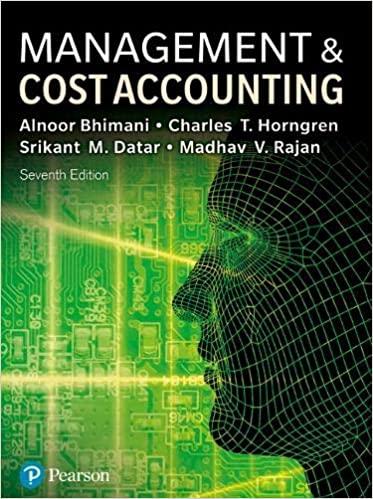Question
Eagles International Group has its head office in Sydney and operates throughout Australia, New Zealand and parts of Asia. There are three main business divisions:
Eagles International Group has its head office in Sydney and operates throughout Australia, New Zealand and parts of Asia. There are three main business divisions:
Brewing division - operates major breweries in the states of New South Wales, Queensland and Western Australia. This is the oldest division.
Newspaper division - owns leading tabloid newspapers in several cities in Australia.
Cable television division - operates cable television services in Asia and Australia. This is a
high-risk, growing market.
Each division is headed by a managing director, who has been given a high level of decision- making authority. Each managing director effectively runs his or her division as a stand-alone business within the general policy guidelines provided by the board of directors in the head office.
Each managing director agrees to achieve a series of targets: return on investment (ROI), market share and sales growth. These targets are developed each year as part of the annual budget-setting process. Intense lobbying takes place between each managing director and the board of directors to determine the most suitable targets.
Each managing director receives an annual cash bonus based on achieving the target divisional ROI. The company defines ROI as operating profit, before interest and taxes, divided by divisional assets (measured at original cost less accumulated depreciation). Senior managers are each eligible for a cash bonus of $60 000 if they reach their divisional ROI target. If performance is above target, share options are awarded at the rate of 10 000 shares for every additional point over target. Thus, if the ROI target is 13 per cent and the division achieves 15 per cent, the manager would be
Page 1 of 5
awarded 20 000 share options. These options are at the prevailing market price on the last day of the financial year, and must be taken up within two years of the award. During the past year, the market price of the company's shares increased from $4 to $6. If the ROI target is not reached, there are no bonuses or share options, and the managing director has to provide convincing reasons for the poor performance. As a consequence of the performance measurement and reward system, the managing directors are highly motivated to achieve, and exceed, their ROI targets.
Ms. Rebecca Fowler has just been appointed as the new management accountant in the head office, charged with redesigning the performance measurement system. As her first task, she has obtained the financial data for the last year and the latest forecast for the current year for each division as follows:
(All figures are in thousands of dollars)
Mr. David Smith, the managing director of the brewing division, is concerned that his market share, and hence his ROI, is likely to suffer next year, as his main competitor has recently purchased new brewing technology. While his own brewing equipment is only 10 years old, it is unable to produce the new varieties of beer that customers are demanding, and maintenance and operating costs are increasing.
Mr. Smith is considering a proposal to invest $10 million in new equipment. This will probably increase next year's operating profit for his division by $1 million. He has analysed the future cash flows of this proposal, and the new acquisition will easily satisfy the minimum required rate of return of 10 per cent for all new investments that is set for the whole group. Without this acquisition. Smith expects his divisional ROI to drop to 14 per cent next year.
Rebecca Fowler is considering expanding the divisional targets to include a range of non-financial measures. She is keen to develop a balanced scorecard (BSC) for each division. Select ONE of the three business divisions:
Formulate two strategic objectives for each of the four perspectives: financial, customer, internal business process, and learning and growth.
Suggest one lag and one lead indicator for each of the strategic objectives in all the four perspectives.
Step by Step Solution
There are 3 Steps involved in it
Step: 1

Get Instant Access to Expert-Tailored Solutions
See step-by-step solutions with expert insights and AI powered tools for academic success
Step: 2

Step: 3

Ace Your Homework with AI
Get the answers you need in no time with our AI-driven, step-by-step assistance
Get Started


